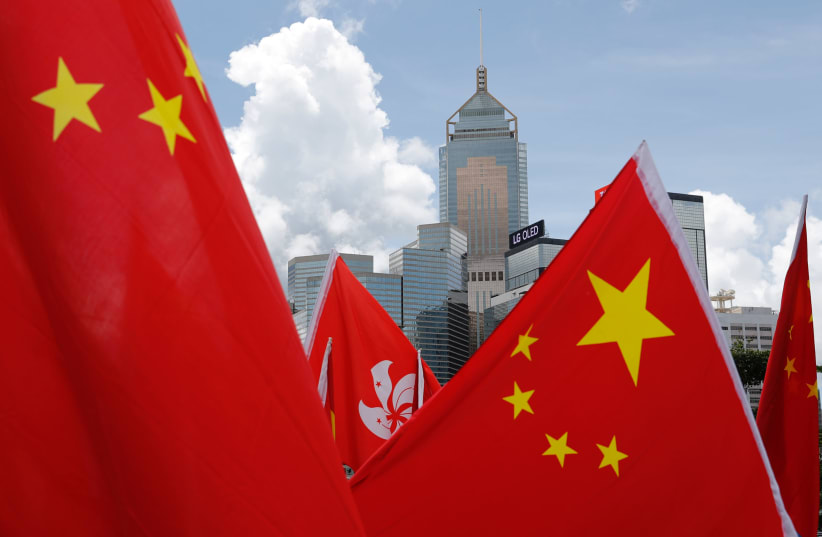The Hong Kong government said the sanctions were "shameless and despicable" and represented "blatant and barbaric" interference in China's internal affairs.
The United States on Friday imposed sanctions on Luo Huining, the head of China's Liaison Office, as well as Hong Kong leader Carrie Lam and other current and former officials that Washington accuses of curtailing political freedoms in the global financial hub.
The move accelerates rapidly deteriorating Sino-US ties, more than a month after Beijing imposed sweeping national security legislation on Hong Kong that drew condemnation from Western governments and sent a chill across the city.
"The unscrupulous intentions of the US politicians to support the anti-China chaos in Hong Kong have been revealed, and their clowning actions are really ridiculous," the Liaison Office said in a statement.
"Intimidation and threats cannot frighten the Chinese people."
Luo, the most senior mainland political official based in the Chinese-controlled territory, said US sanctions on him indicated he was doing what he "should be doing for my country and Hong Kong", according to the statement.
As well as Luo and Lam, the sanctions target Hong Kong police commissioner Chris Tang and his predecessor Stephen Lo; John Lee, Hong Kong's secretary of security, and Teresa Cheng, the justice secretary. Xia Baolong, the director of the Hong Kong and Macau Affairs Office in Beijing, was also named.
Police chief Tang told local media on Saturday that maintaining the security of the country and Hong Kong was his responsibility, and foreign sanctions were meaningless.
The sanctions freeze any US assets of the officials, prohibit them from carrying out business in the country and generally bar Americans from doing business with them.
The US Treasury said the "draconian" national security law Beijing imposed on Hong Kong had undermined its autonomy and set "the groundwork for censorship of any individuals or outlets that are deemed unfriendly to China."
COLLISION COURSE
Beijing imposed the law directly on Hong Kong just before midnight on June 30, circumventing the city's legislature, and the city's officials were not aware of the details of the law until it was implemented.
The legislation has steered China further on a collision course with the West, prompting countries including Australia, Canada and Britain to suspend extradition treaties with Hong Kong.
Some Hong Kong people have fled the city to set up home overseas, while immigration consultants have reported a surge in inquiries of people looking to leave.
Hong Kong authorities have issued arrest warrants for six pro-democracy activists who fled the city and were suspected of violating the new security.
The US sanctions come a week after Hong Kong postponed a Sept. 6 election to the Chinese-ruled city's legislature by a year, citing a spike in coronavirus cases, dealing a significant blow to the pro-democracy camp.
Washington said the election delay was the latest example of Beijing undermining "the democratic processes and freedoms that have underpinned Hong Kong's prosperity."
The security legislation targets what Beijing broadly defines as secession, subversion, terrorism and collusion with foreign forces with up to life in prison.
Beijing and the Hong Kong government have said the law will not affect rights and freedoms, and that it is needed to plug security loopholes. They said it will only target a small minority of "troublemakers."
Some political analysts say the national security law coming directly from Beijing and bypassing Hong Kong's legislature signals the start of a more authoritarian rule in the semi-autonomous city and a march toward mainland control.
Critics of the law say it erodes basic rights and freedoms, guaranteed when Hong Kong returned to Chinese rule in 1997, while supporters say it will bring stability after a year of often-violent anti-government and anti-China unrest.
